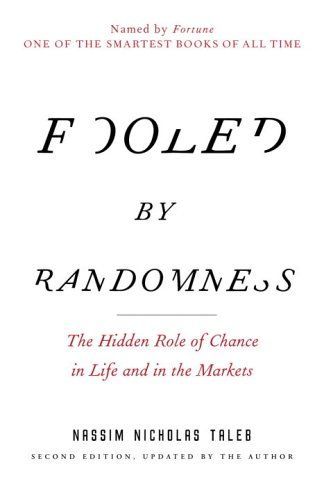
Fooled By Randomness The Hidden Role Of Chance In Life And In The Markets
Contends that randomness and probability have a large impact on life, claims that people regularly fail to recognize that role, and tells how to differentiate between randomness in general and the financial markets in particular.
Reviews
Pitch Taotawin@pitch
robert preswick@prez
Gavin@gl
Bouke van der Bijl@bouk
Dana Kraft@dkatx
ANDREW BRYK@andrewbryk
Ivaylo Durmonski@durmonski
Paul Joshi@pauljoshi
Luciano Maciel@lukemaciel
Ahmed El-Helw@ahmedre
manav @manavmishra
Thomas Beuls@thomasb
Christian Bager Bach Houmann@cbbh
Ryan Greene@rryangr
C S@cstephen
Konstantin Q@knstntn
Dimi@dprtsk
Richu A Kuttikattu@richuak
Kevin Owens@ko2111
Peter@lastyearsman
Pamela Koh@the1pam
Mt Tetzel@mrzool
D VA@pneumatic
Akhil Ravidas@akhil